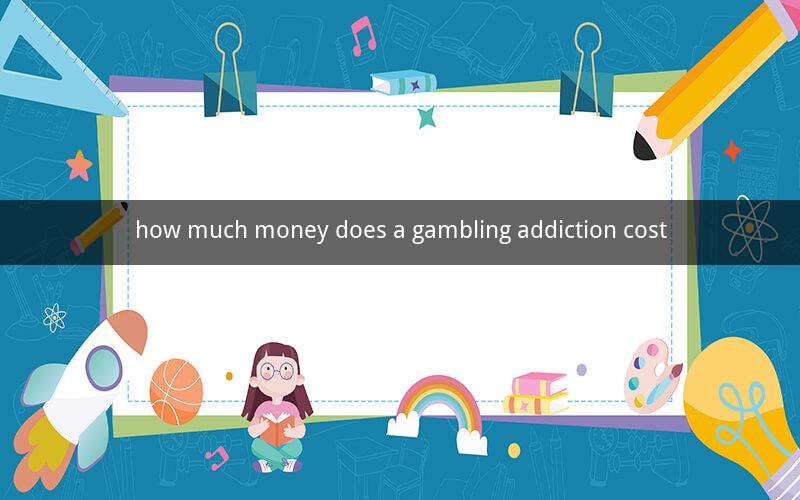
The Financial Toll of Gambling Addiction
Table of Contents
1. Understanding Gambling Addiction
2. The Economic Impact of Problem Gambling
3. Direct Costs of Gambling Addiction
4. Indirect Costs of Gambling Addiction
5. The Long-Term Financial Consequences
6. Social and Psychological Costs
7. The Role of Society and Support Systems
8. Case Studies: Real-Life Examples
9. Prevention and Intervention Strategies
10. Conclusion
1. Understanding Gambling Addiction
Gambling addiction, often referred to as problem gambling or compulsive gambling, is a condition characterized by an uncontrollable urge to gamble, despite harmful negative consequences. It can affect individuals from all walks of life, regardless of age, gender, or socioeconomic status.
2. The Economic Impact of Problem Gambling
The economic impact of gambling addiction is vast and multifaceted. It affects not only the individual but also their family, friends, and the broader community. The cost of gambling addiction is often underestimated, as it encompasses both direct and indirect expenses.
3. Direct Costs of Gambling Addiction
Direct costs are the tangible expenses associated with gambling. These include:
- Loss of savings and investments
- Borrowing money to fund gambling activities
- Credit card debt
- Legal fees from gambling-related issues
- Lost income due to time spent gambling
4. Indirect Costs of Gambling Addiction
Indirect costs are the less visible, yet significant, expenses that arise from the consequences of gambling addiction. These include:
- Divorce and separation costs
- Child support and alimony payments
- Healthcare expenses resulting from stress, anxiety, and other mental health issues
- Lost opportunities for career advancement and education
- Loss of community and social connections
5. The Long-Term Financial Consequences
The long-term financial consequences of gambling addiction can be devastating. It can lead to:
- Homelessness
- Loss of employment
- Bankruptcy
- Dependence on public assistance
- Continued financial strain on family members
6. Social and Psychological Costs
Gambling addiction also has significant social and psychological costs. These include:
- Relationship breakdowns
- Stress and anxiety
- Depression
- Suicidal thoughts and attempts
- Decreased quality of life
7. The Role of Society and Support Systems
Society plays a crucial role in addressing the issue of gambling addiction. Support systems, such as:
- Counseling and therapy services
- Self-help groups
- Financial counseling
- Legal aid
- Community programs
Can help individuals overcome their addiction and minimize the financial and social costs.
8. Case Studies: Real-Life Examples
Real-life examples of gambling addiction and its financial consequences can be found in various industries and walks of life. From professional athletes to celebrities, the impact of gambling addiction is evident. These stories serve as a reminder of the seriousness of the problem and the need for intervention.
9. Prevention and Intervention Strategies
Prevention and intervention strategies are essential in combating gambling addiction. These include:
- Education and awareness campaigns
- Responsible gambling practices
- Limits on gambling advertising
- Access to support services
- Early intervention for at-risk individuals
10. Conclusion
Gambling addiction is a complex issue with significant financial, social, and psychological consequences. Understanding the true cost of gambling addiction can help individuals and society take steps to prevent and address this problem. By providing support, education, and resources, we can help those affected by gambling addiction rebuild their lives and mitigate the financial toll.
Questions and Answers
1. What are the immediate financial consequences of gambling addiction?
- Immediate financial consequences include loss of savings, credit card debt, and legal fees.
2. How does gambling addiction affect a person's long-term financial stability?
- Long-term financial stability can be severely impacted, leading to homelessness, bankruptcy, and dependence on public assistance.
3. What role does society play in addressing gambling addiction?
- Society plays a role through support systems, education campaigns, and responsible gambling practices.
4. How can individuals prevent gambling addiction?
- Individuals can prevent gambling addiction by setting limits, being aware of the signs of addiction, and seeking help when needed.
5. What are some of the psychological effects of gambling addiction?
- Psychological effects include stress, anxiety, depression, and suicidal thoughts.
6. How can family members support someone struggling with gambling addiction?
- Family members can support someone by providing emotional support, seeking help together, and setting boundaries.
7. What are the most effective treatment methods for gambling addiction?
- Effective treatment methods include counseling, therapy, support groups, and financial counseling.
8. How can employers address gambling addiction in the workplace?
- Employers can address gambling addiction by providing resources and support, such as counseling services and flexible work arrangements.
9. What are some signs that a person may have a gambling addiction?
- Signs include lying about gambling activities, borrowing money to gamble, and experiencing financial problems.
10. How can communities create a supportive environment for those recovering from gambling addiction?
- Communities can create a supportive environment by offering resources, education, and fostering a non-judgmental atmosphere.